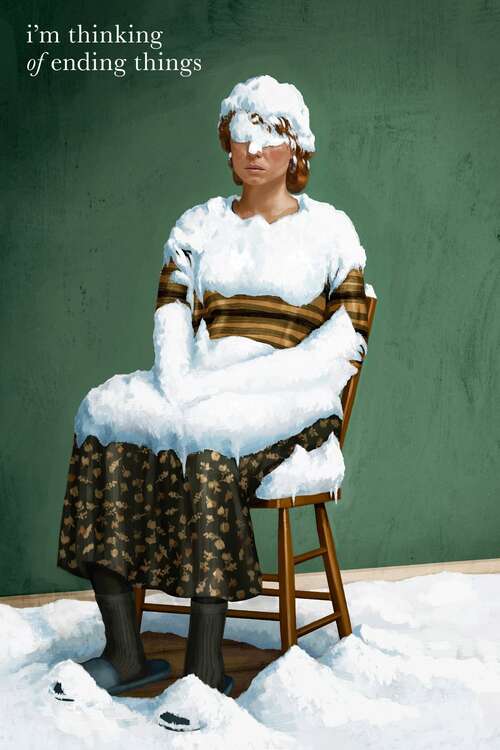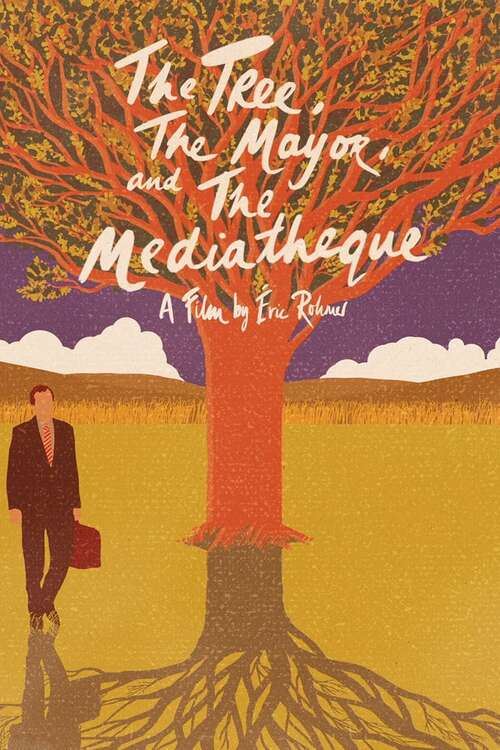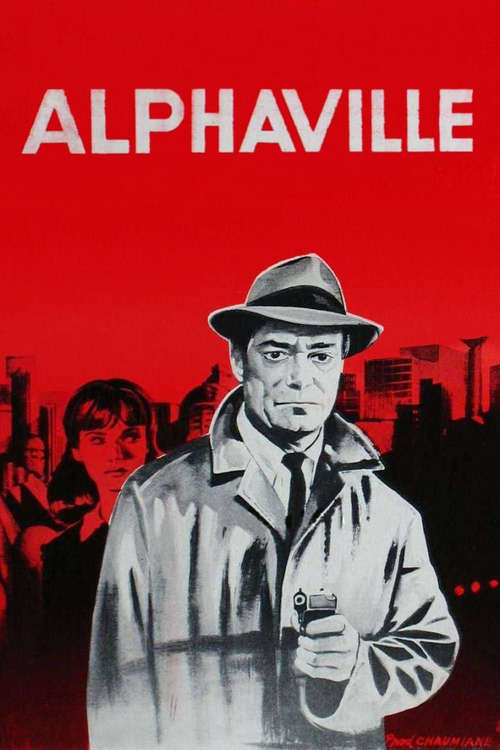Longform
Bookshops are Back
Sometimes you don’t even realise what you’ve been missing. Or how much you’ve been missing it. I went to our local bookshop, the lovely Pages of Hackney, to pick up a book that I had ordered and that had to come from the US.1
They’ve stayed in business through this mad year, and I’ve ordered several books from them in that time. If a book’s not in stock they can usually get it in in a couple of days. I just had to walk up the road and collect them at the door.
No going in, though. Apart from collecting an order, all I could do was look in the window.
So it was fantastic to be able to go into the shop and browse. I’d almost forgotten what that’s like.
-
The Situation and the Story, by Vivian Gornick. I don’t know why it had to cross the ocean. ↩︎
Good Vibrations, 2012 - ★★★★

Great fun story of Terri Hooley, who ran the eponymous record shop and label in Belfast.
Great music, and an appearance by John Peel; or at least an actor doing his voice very badly.
Palm Springs, 2020 - ★★★★½

Brilliant time loop film (oh, spoilers, fuck off), let down only slightly by the ending. I’d have rolled credits when it goes black.
Not that the ending they did have is bad; just that it’s the weakest part of what is a totally great film.
How to Write an Autobiographical Novel by Alexander Chee (Books 2021, 4)
Despite the title, this is not a writing ‘how-to’ book, except maybe by example. Nor is it a novel itself; it is a collection of essays. The subjects they cover do include writing and writing courses, most notably the Iowa Writers’ Workshop. That was one of the first, if not the first, postgraduate-level courses in creative writing, and Chee studied on it.
But the book covers a lot else, too. As Chee is a mixed-race gay man, you won’t be surprised to hear that those details feature in a number of the essays. As does living in New York and trying to make it as a writer. And growing roses, and the origin of Catholic rosary beads.
I was drawn to this because one of the essays was assigned reading on the MA early this term, and he was also cited at various other points on at least two modules.
His debut novel is called Edinburgh, which immediately interests me. Though you learn from a couple of the essays that he hoped, when younger, to go to Edinburgh to study parapsychology, but didn’t; and that the Edinburgh connection in the novel didn’t survive the writing and editing process, but he kept the title anyway.
I don’t know what his fiction is like yet, but he’s a fine essayist.
On Giving Up On a Book
This is not, as you might have guessed from the title, about writing. It’s about reading.
How long should we give a book by even a beloved author, before giving up on it, if we are not enjoying it?
It’s relatively rare for me not to finish a book that I start. There are a few that I took a couple of runs at, having to start again – Ulysses springs to mind. And some that I haven’t finished, and would have to start again: Gravity’s Rainbow, Swann’s Way. I might never bother with either of those again, but you never know.
I’m fairly sure I’ll never get further than the the two or three pages I’ve managed into Finnegan’s Wake. And there’s the odd other one I’ve abandoned. One that I accidentally left on a train, and realised I didn’t care. It was something to do with an excise inspector in Scotland. No idea what it was called or who it was by.
Most of those above are what people would call difficult: something about the style, form, or content makes reading them a challenge. Overcoming that challenge can be rewarding, but we should never feel guilty about abandoning them if we’re not enjoying them, I feel. Reading for pleasure should not be a chore.
But now we come to a strange case. Claire North is an author I like a lot. The First Fifteen Lives of Harry August was great, and so was Touch, which I read the last time I was out of the country.
So I was pleased to get her 84k for Christmas. And I’ve tried to read it twice, but I just can’t get into it. It’s not that it’s boring or hard to read.
It’s that it’s unpleasant.
That probably doesn’t make a huge amount of sense. Lots of books have unpleasant characters, or depict upsetting or hurtful events. Lots of entertainment shows those things, TV, movies, songs…
I have mentioned here before that I don’t really care for dystopias as a subgenre.1 I’m not sure I can easily explain why that is, but they just don’t appeal.
And this is set in one. It’s largely a version of Britain, more or less present-day, but things have gone so far into privatisation, rampant capitalism, and generally Conservative party policies, that everyone knows the value of a human life.
That’s what the title means. That’s how much, in pounds, the rich have to pay to get away with murder. They can do anything else they want, too, as long as they can afford it.
I’m sure it will have a positive, maybe even uplifting, outcome. But I won’t be carrying on with it. I got about thirty pages in on my second time of starting it (only a couple the first time), and it’s just too bleak, too grim, for me to want to spend any more time there.
Maybe it’s partly the times were living in. But it’s not for me.
-
If that’s the right thing to call them. ↩︎
End of Term 2
Here we are at the end of the second term of my masters. In fact, the end of the taught part of the whole thing. Teaching is finished. In the summer term, which starts a month today, We have a series of lectures from various writing teachers and people from the writing and publishing fields. But no more seminars, no workshops, unless we, the students, organise them ourselves.
I have two 5000-word pieces to submit in a month‘s time – one for the Creative Nonfiction module, and the other for the Writing Workshop. After that it‘s just solid writing and editing until I submit my dissertation in September.
That‘s not quite the whole story. I will also have two meetings with my dissertation supervisor. Or actually, supervisors, because we have been assigned two. The reasoning seems to be that more people seeing our work is a good thing. I can certainly see the sense of that. But at the same time I wonder whether we‘ll lose the advantage of continuity. What if the first one recommends some changes, I make them (or at least, integrate their suggestions with my own ideas), and then the second recommends their opposite?
Oh well, it probably won‘t happen, and I‘ll deal with it if it does.
As for the two pieces I‘m submitting in a month, right now I have the required number of words for both. So I have a month to manipulate them, structure them, and make sure they‘re the best words. A process we writers call ‘editing.‘
They Don't Call it 'Fastmail' for Nothing
I was opening a ticket with Fastmail (not a problem, just a query), and when I hit ‘Submit,’ the confirmatory email was in my inbox before the next web page finished loading.
It’s a really good service which I highly recommend, and if you were to sign up using the above link, you’d get 10% off your first year. I would get a small kickback too.
Break away from big email!
Astral Zen
Phase one complete, for me. I’m not long back from the vaccination centre (a vacant unit at the Westfield shopping centre, slightly weirdly) where I got my first dose of the AstraZeneca Covid-19 vaccine. I can feel my immune system surging, boosted with superpowers, and a strange, unearthly calm descend upon me.
I exaggerate. But it feels pretty damn good to have taken this step. I don’t get the next one until June, and it’s not like we’ll be out of the woods even then; not even personally, and certainly not the country or the world. Especially given the panic over a statistically meaningless set of blood clots, and the news today that the UK’s supply is going to be temporarily constrained.
But considering that it’s only just over year since we learned about this virus and the terrible disease it brings, it’s worth taking a moment to celebrate the scientists and doctors who were able to develop the vaccines so quickly. Not to mention all the NHS staff who are getting it to people.
I'm Thinking of Ending Things, 2020 - ★★½

Charlie Kaufman lets us down, by being deliberately, viscerally confusing, to the point of meaninglessness. Yet I find it quite compelling after the first twenty minutes or so.
Ultimately empty, though.
Corona Vu
This article was in yesterday’s Independent. I felt like I had travelled back in time to last May:
Crucially, the report, which was written by independent experts, concludes that NHS guidelines failed to consider airborne infection, a key way the virus is transmitted.
– Sean Russel in the Independent, NHS Covid guidelines ‘fundamentally flawed’ and need replacing, says nursing union
It further says:
But research now suggests that airborne transmission – where tiny droplets of saliva from people talking, calling out or coughing can remain suspended in the air – can be a particular problem in poorly-ventilated rooms.
– As above, Independent article
‘Now’? Research now suggests that it’s airborne? We’ve known that since at least June of last year. In fact, I first posted about masks, and about going out with a rudimentary one, in early April!
How can NHS guidelines be so ludicrously far from what we understand? It would be comically far if it wasn’t so serious.
Everything I Never Told You by Celeste Ng (Books 2021, 3)
This book is infuriating. At times, and in certain ways, at least. Or not the book, but some of the characters.
For example, the parents, especially the dad – are so fucking pathetic it makes me angry. He can’t even boil an egg for his kids’ breakfast when his wife’s away.
And throughout the early part you’re wondering why do they both love Lydia much more than their other two kids? Even before she dies, I mean?
Oh, yes it’s a dead girl story, did I mention that? Lydia is fridged in the first line, so it’s not a spoiler. It’s totally a fridging, though. That page tells you that the term means killing a female character ‘often as a plot device intended to move a male character’s story arc forward.’ Lydia’s death drives the whole plot, including the actions of her father and brother, so it definitely qualifies.
Her mother and little sister too, but that doesn’t lessen the truth of it.
It’s a very good exposition of a family with secrets at its heart. Though in the case of some of the secrets, there’s no very good reason for the person to keep them secret. A lot of problems could have been avoided – including, probably, the death of Lydia – if people had just talked to each other. That’s part of what’s so infuriating about it at times.
But maybe that – the difficulties people, families, have in communicating – is the point.
I also wondered why she chose to set it in the time she does. The present day parts are in 1977-8. I think it’s so that she can write about the particular immigrant experience she does: second and third generation Chinese immigrants to the US.
I picked this up because one of my tutors recommended it to me, due to its use of an omniscient narrator. I’m trying something similar with something I’m working on at the moment. This article in the New York Times practically credits Ng with bringing omniscient narration back into fashion. I don’t feel that it ever really went away, but maybe it has remained more common in SF than in literary fiction. Though as I write that I’m not sure I could cite an example from recent SF either, so maybe I’m wrong.
Here’s a good article by Ng herself about her decision to use the device. It’s been useful to me, anyway. And I actually enjoyed the book, aside from being annoyed at times.
No Project, Plenty of Fear
All through the Brexit debate, and after, people warned that it would cause problems in Northern Ireland. And now here we are:
Loyalist paramilitary groups have told the British and Irish governments they are withdrawing support for the Good Friday agreement in protest at Northern Ireland’s Irish Sea trade border with the rest of the UK.
– Rory Carroll in The Guardian, Brexit: loyalist paramilitary groups renounce Good Friday agreement
Brexiters dismissed those concerns as fearmongering.
I don’t know what the end result of this will be, but I can’t imagine it being good.
After the Money's Gone
Robin Rendle raises a concern we should all (who write on the web) have:
But if my URL is dead, my website dies with it.
My work shouldn’t be presented in the Smithsonian behind glass or anything, I’m just pointing at this enormous flaw in the architecture of the web itself: you’re renting servers and renting URLs. Nothing is permanent because on the web we don’t really own any space, we’re just borrowing land temporarily.
– Robin Rendle, Inheritance
What happens to our websites after we’re gone? There needs to be a way to memorialise them, make sure they’re still around in some form. Archive.org is great, but it doesn’t keep the canonical URLs alive. Famously, Tim Berners-Lee wrote, ‘Cool URIs Don’t Change.’ Disappearance is the biggest change of all.
Although I see from there:
Pretty much the only good reason for a document to disappear from the Web is that the company which owned the domain name went out of business or can no longer afford to keep the server running.
– Tim Berners-Lee, Cool URIs Don’t Change
Hmm, is that a good reason? and it’s surprisingly slanted towards companies, considering the origin of the web, and TBL’s place of work.
(And speaking of cool URIs – or domains – home.cern? That is fantastic!)
The Tree, the Mayor and the Mediatheque, 1993 - ★★½

After watching Call My Agent! on Netflix, we wanted to watch some French films, and maybe with some of the actors and/or directors who were in the series. So we started with this.
It's described as a comedy. It's mildly funny in places, but it's mainly a kind of social commentary thing about land use in rural France. Enjoyable enough.
A Year Passes Like Nothing
It’s exactly a year since I last went out to an event.1
I referred to ‘being out on a cold, virus-infested night’ to see Glen Matlock in Leytonstone, and it seems really weird now that I did it.
What were we thinking? Gathering together in a small hall, where people were singing and shouting. And not a mask to be seen! Masks? who had masks? How would we have drunk our beer while wearing a mask? You probably wouldn’t have been let in if you had turned up wearing a mask.
Although I had good social distancing at the start, when I was almost the only one there.
Memory, eh?
-
I actually thought it was on the last day of February 2020, which was the 29th, not the 28th, making it hard to hit the exact anniversary, but my blog and calendar both tell me I was wrong. ↩︎



